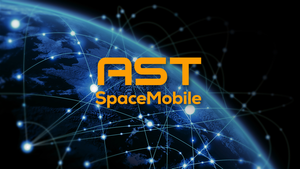by Grace Coleman
SOURCE: Acre
DESCRIPTION:
As part of our DEI Speaker Series, Acre invited the team at Global Butterflies to host a talk on global trans & non-binary issues, with an added business perspective. Established in 2015, the founder Rachel Reese created Global Butterflies to bring awareness of trans and non-binary issues to the business sector. By working closely with companies, her hope is to help organisations adopt a zero-tolerance approach to trans-phobic behaviour and attitudes, whilst also taking steps to help them become more inclusive in their cultures. Acre has taken these steps to improve our knowledge and understanding of these issues and make sure we put the right measures in place to ensure our work environment is as inclusive as possible. From the talk, we have selected five ways companies can ensure they create an inclusive workplace and recruitment process when hiring new talent.
Show Pride
One of the most important steps a company can take when they are trying to hire and recruit LGBTQ candidates is to publicly showcase their support for the community. When applying for a role, a lot of candidates will do their research. Companies who are passionate about their D&I commitments will show clear evidence of an inclusive and open work environment which will make them feel more comfortable in joining. Rachel suggested some ways that companies can ‘show their pride’ such as including your pronouns in your signature and LinkedIn profile, changing your logo during pride month to the rainbow flag and supporting charities that support LGBTQ causes, charities, or community centres.
On your website and all external content make sure information is shared about your D&I commitment. When a potential candidate is researching your company, you want your values to stand out. By consistently showcasing your commitment, it will guarantee candidates will feel confident with the knowledge they are applying to be part of a company that have an established D&I culture.
“It comes down to one thing that we're looking for and it is action, not words. A lot of companies will say they'll do it, and then you don't see the action. A really good thing to do for recruiters is putting your pronouns in your email signature or on social media. This is sign that you really get this and it’s a good allyship thing to do, as we will know that we will feel safe with that person.
Starbucks is a great example of an organisation who have made a huge commitment to diversity and inclusion in their branding. When you go into Starbucks, you order a coffee, and you have your name on it. For a trans or non-binary person, they are often called the wrong name, but at Starbucks, you can have your right name on a coffee cup, which is a huge piece of life affirming acceptance. They also gave a lot of the proceeds from the sale of a cookie to trans and non-binary charities in the UK. Not only did this have alignment with the inclusion values but adds credibility to their long history of being supportive of LGBTQ plus people.”
Gender Neutral Recruitment Process
“Applications should be inclusive. Please give me a place to put my gender marker and my pronouns. If they go to apply for a role and they only see two gender options on the application form, they are not going to apply.”
When you are looking for a candidate to apply for a role or even join an organisation, it’s best to make sure the process is as inclusive and unbiased as possible. Below are just a few things you can do to ensure the process attracts a diverse talent pool:
-
When writing up job descriptions, creating the application or other recruitment marketing material, make sure the copy is gender neutral. For example, instead of referencing a potential candidate as “he or she” in a job description, by using “they” or “you”, it will ensure the application is more inclusive of all genders. That way the role will appeal to all candidates ensuring that you eliminate gender bias.
-
When asking applicants to choose their title, allow them the option to write their own title or offer the option of ‘mx’ for those who do not identify as being of a particular gender, or for people who don't want to be identified by gender.
-
Adding a statement towards the end of the job description lets candidates know that you welcome them into your culture before applying for the role.
Work with organisations/individuals who share the same values
On your journey towards building a more inclusive company it is important that you think about the relationships you have with other organisations and whether their values align with yours. As an example, recruiters are trusted by candidates to place them into not only the right role but the right company. This is especially relevant for candidates from the LGBTQ community or diverse backgrounds, because they want to
know that the policies of the company they are joining are already embedded in policy. They don't want to have to be the representative that has to change company policy. As the internal consultant, recruitment companies need to push back on clients to make sure they have it ready.
“There is a challenge for organisations who are saying that they are inclusive then they are given a brief by a client that is not inclusive and it's really about having that conversation with them. You have to ask them, ‘how does this brief align with your commitment to inclusion?’ This can open up a conversation to understand more about their expectations and values. From that conversation it's about thinking do we walk away from revenue if a client doesn’t align with our values.
An example of a company who has done this is Lloyds Bank, one of the leading LGBTQ inclusive retail banks. They went into the press, probably over a year ago with a statement of supporting trans and non-binary rights, in answer to a hideous article in the metro, which was very anti trans. A lot of brands put their logos in and say we stand by trans rights and Lloyds Bank was one of them. Their response was yes, ‘we got complaints, but we've accepted those customers, because we believe for us, there's a commercial consideration, and we are an inclusive bank, and this is what we stand by. And if our customers don't agree with that, then they can go and bank somewhere else’.”
Senior leaders speak up
One of the best forms of allyship is if Board Members, CEO’s and Senior Leaders speak up on the importance of D&I and LGBTQ rights. When senior leaders take ownership of D&I, they are willing to learn and make themselves part of the diversity and inclusion management process, it sets an example to the rest of the company. As a leader there are several things you can do to start genuinely embedding D&I:
-
It is important that you learn from your employees - ask them how diversity impacts their lives and career experiences and use this knowledge to make supportive changes within your business
-
Educating yourself and being open to learning is key. There are great books, seminars, talks and consultants doing work in this space who you can learn a lot from. This also means educating your employees and leadership team to increase their understanding and awareness.
“We are huge believers of supported messages coming from the top. CEO, Senior Leaders and Board members who talk about the importance of trans and non-binary inclusion is an amazing form of allyship but equally just we call it shining the light from the top. It starts to give that climate and culture of inclusion and making sure that everybody can feel really included. We support a number of transitioners at work in variety of different workplaces and all of them have said the reason they came out at their workplace was because of a senior leader.”
Conduct inclusive employee surveys
Sending out employee surveys allows your team to be open and honest and to give constructive feedback to the company. This allows you to expose areas that you are exceeding in and where you have room to improve. It is also just as important to send out D&I focused surveys that allow employees to stay anonymous and ask them if they have felt supported regardless of their gender or sexual orientation. It will give them the opportunity to share their experiences and share ways to make your workplace more inclusive for diverse team members.
“There is a rise of specialists D&I recruitment teams who specialise in purely finding diverse candidates. However, I think other suppliers are equally valid. Here in the UK, there's a really good job board called Total Jobs and every three to four years they commission a trans and non-binary survey. They find out about people's experiences in the workplace, it is a comprehensive survey that has gained a lot of credibility in the trans and non-binary community. As a supplier to try and source great talent, they're obviously using that to gather email addresses and names and get people involved. But as a positive shout out to cast in this community, it's a really great way to say, as a supplier, we want diverse talent, but we want to do surveys so we can engage in the conversation, we want to hear what you have to say and hear your experiences without setting yourself up as a pure diversity and inclusion supplier.”
Overall, making sure your hiring process and work environment is inclusive goes beyond celebrating pride month. Action starts with improving D&I within the workplace, educating yourselves, supporting causes to make a positive impact, learning from others and putting in the right processes. All of which will have a positive impact on your ability to connect with different communities and attract a higher volume of diverse candidates. To take things a step further and to learn more for yourself about the changes you can make, please click here.
KEYWORDS: Global Butterflies, ACRE
![]()






